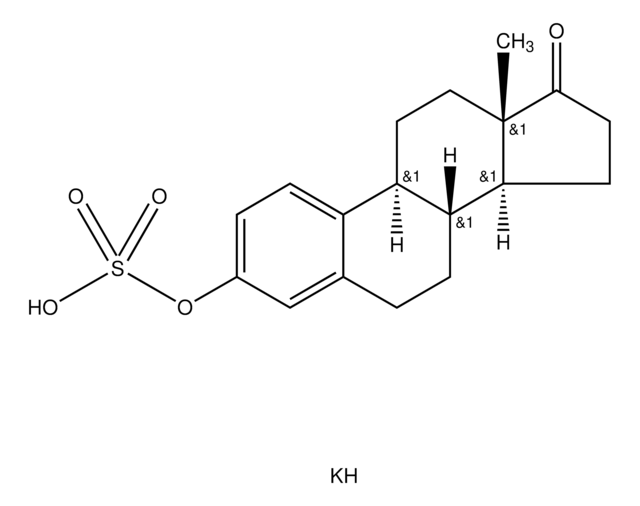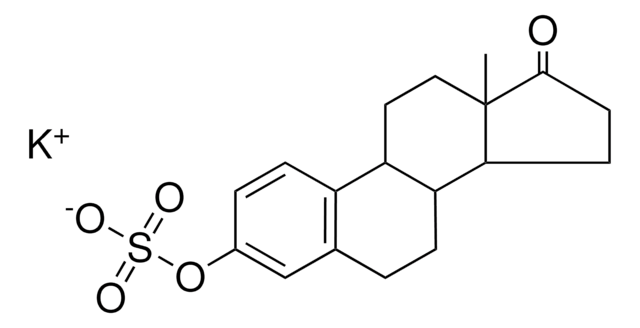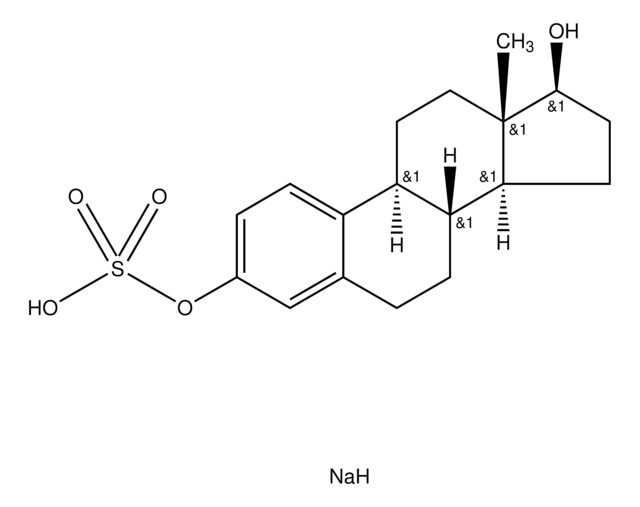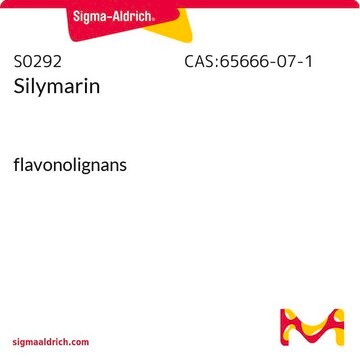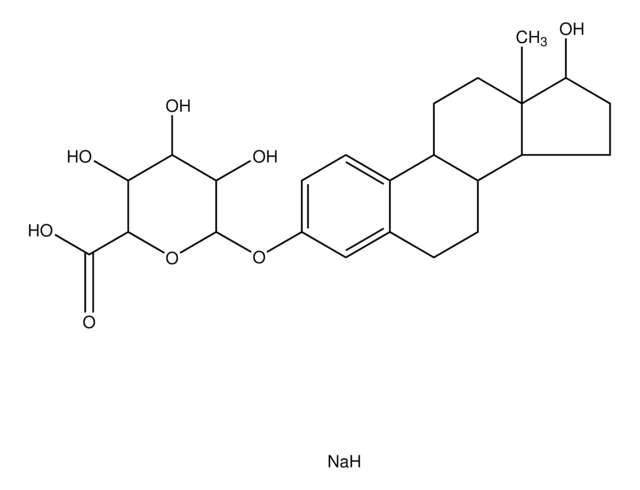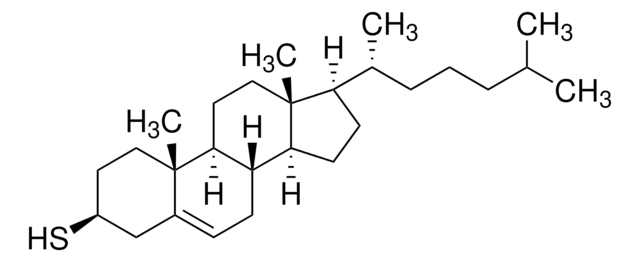E0251
Estrone 3-sulfate sodium salt
contains ~35% Tris as stabilizer
Synonyme(s) :
1,3,5(10)-Estratrien-17-one 3-sulfate
About This Item
Produits recommandés
Source biologique
synthetic (organic)
Niveau de qualité
Stérilité
non-sterile
Pureté
≥98% (TLC)
Forme
powder
Contient
~35% Tris as stabilizer
Technique(s)
inhibition assay: suitable
Solubilité
methanol: 19.60-20.40 mg/mL, clear, colorless to faintly yellow
Conditions d'expédition
ambient
Température de stockage
−20°C
Chaîne SMILES
[Na].[H][C@]12CC[C@]3(C)C(=O)CC[C@@]3([H])[C@]1([H])CCc4cc(OS(O)(=O)=O)ccc24
InChI
1S/C18H22O5S.Na.H/c1-18-9-8-14-13-5-3-12(23-24(20,21)22)10-11(13)2-4-15(14)16(18)6-7-17(18)19;;/h3,5,10,14-16H,2,4,6-9H2,1H3,(H,20,21,22);;/t14-,15-,16+,18+;;/m1../s1
Clé InChI
GQZNDBBLTDOIBE-DLEHHZMWSA-N
Caractéristiques et avantages
Conditionnement
Mention d'avertissement
Danger
Mentions de danger
Conseils de prudence
Classification des risques
Carc. 2 - Lact. - Repr. 1A
Code de la classe de stockage
6.1C - Combustible acute toxic Cat.3 / toxic compounds or compounds which causing chronic effects
Classe de danger pour l'eau (WGK)
WGK 3
Point d'éclair (°F)
Not applicable
Point d'éclair (°C)
Not applicable
Certificats d'analyse (COA)
Recherchez un Certificats d'analyse (COA) en saisissant le numéro de lot du produit. Les numéros de lot figurent sur l'étiquette du produit après les mots "Lot" ou "Batch".
Déjà en possession de ce produit ?
Retrouvez la documentation relative aux produits que vous avez récemment achetés dans la Bibliothèque de documents.
Les clients ont également consulté
Articles
Discover Bioactive Small Molecules for ADME/Tox
Discover Bioactive Small Molecules for ADME/Tox
Discover Bioactive Small Molecules for ADME/Tox
Discover Bioactive Small Molecules for ADME/Tox
Notre équipe de scientifiques dispose d'une expérience dans tous les secteurs de la recherche, notamment en sciences de la vie, science des matériaux, synthèse chimique, chromatographie, analyse et dans de nombreux autres domaines..
Contacter notre Service technique